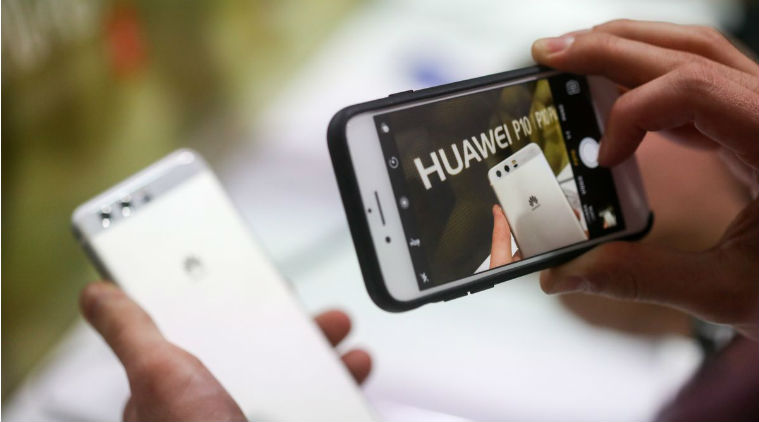Huawei proposes ‘No Back Door’ to Government of India
June 27, 2019 | Expert Insights

Background
Huawei Technologies is a Chinese multinational networking and telecommunications equipment & services company and the largest telecommunications equipment manufacturer in the world. In 2018, it became the world's second-largest smartphone maker.
Huawei’s 74-year-old founder Ren Zhengfei, was a technician for the People’s Liberation Army before founding Huawei in 1987. Huawei has come under global scrutiny after the US raised security concerns regarding its 5G equipment, given its perceived proximity to the Chinese government. The US has asked its allies to ban 5G gear from Huawei to which Canada, Japan, Australia, New Zealand have reportedly consented.
Analysis
Huawei has urged India to make an "informed and independent decision" on permitting its 5G trials in the country as the Chinese telecom giant reeled under pressure following the US ban.
India’s department of telecommunications (DoT) began the process for 5G roll-outs by seeking a comprehensive review of the sector regulator’s recommendations on the upcoming spectrum auctions of 5G, the next-generation technology for wireless communications that is expected to improve data speed and propel Internet of Things. India has also approved a one-year 5G trial period and a one-time fee of ₹5,000 for entities seeking experimental spectrum to conduct trials. The trails are scheduled to commence in 100 days. Under its national digital communications policy approved by the cabinet in September, India aims to attract $100 billion in investments by 2022 and create four million jobs in the sector.
It has not stated explicitly whether it will allow Huawei to participate in the trials as DoT awaits a recommendation from the committee examining security risks arising out of Huawei’s presence in 5G networks. Telecom Minister Ravi Shankar Prasad said India has its security issues over allowing Huawei to participate in the upcoming 5G trials. "We will take a firm view on it. There are also security issues...it is not only a matter of technology, as regard their participation in 5G is concerned...Participation of 5G is not conditional upon the trial being started. Whether a particular company is allowed to participate or not, is a complex question including security issues," he said.
Huawei in its statement noted that "The Indian Government or any other country must take an independent view to protect its own networks and data through its own standards, test mechanisms and policies. It is important to address cybersecurity risks through evidence and fact-based approach, introducing checks and balances with monitored participation rather than banning out of fear,".
Jay Chen, Chief Executive of Huawei India said that the company was proposing to the Indian government that we are ready to sign 'no back door' agreement. “We encourage other OEMs (original equipment manufacturers) also to sign this kind of agreement with the government and telecom operators.
India will also be free to test Huawei’s equipment for any alleged breach either on its own or through a third party (Indian or international), without informing the Chinese company. Huawei is willing to pay compensation if there is any deficiency in the security system of its network, depending on how serious the lapse is. This proposal comes a day before US secretary of state Mike Pompeo’s visit to New Delhi. Various issues, including Huawei’s participation in 5G roll-outs, are expected to figure in discussions between Pompeo and Indian government officials during his visit from 25-27 June.
Defending its position, Huawei has said it has already deployed 5G technology in India through advanced MIMO (“multiple input, multiple output”, which increases spectrum efficiency), and that the security concerns raised against it have no foundation. Huawei at present has most of its equipment installed in the network of Bharti Airtel Ltd. and Vodafone Idea Ltd.
Assessment
Our assessment is that 'back door' in technology products refers to an arrangement with government or with any third party to share the customer's data in an unauthorised manner with malafide intention or ulterior motives. This means that if there is evidence of a security breach by Huawei, the Indian government can ban the Chinese firm.
We feel that Huawei’s proposal to sign a ‘no back door’ is to ease concerns, led by the US that its product pose a national security threat. We feel that this is a clever strategy to onboard India, as this would negate any economies of scale that western companies would need to make their 5G offer commercially viable. We also believe that China needs to have access to the Indian market as this would provide additional scale with regards to users. India with its sizeable young population, hungry for digital services presents attractive opportunities for the 5G services business.
We realise that Huawei is urging cash-strapped South Asian nations to adopt its low-cost 5G technology. According to our analysis, these nations aim for commercial deployment of 5G services soon. The region, with mobile internet penetration focus to rise around 61% by 2025, is a significant market for Huawei.
We have observed that the telecom department had devised security guidelines in 2011 that mandated telecom operators to install certified equipment and devices in their network to ensure they are free from malicious software or bug. It proposed hefty penalties on telecom companies for failing to ensure compliance with the law. We feel that India is yet to set up labs to examine security issues in telecom gears and products.
India watch
The challenge for developing an indigenous ecosystem with domestic manufacturing capabilities is that by the time India achieves this threshold, the domestic market could have already adopted the platform from global companies.
Read More:








Comments